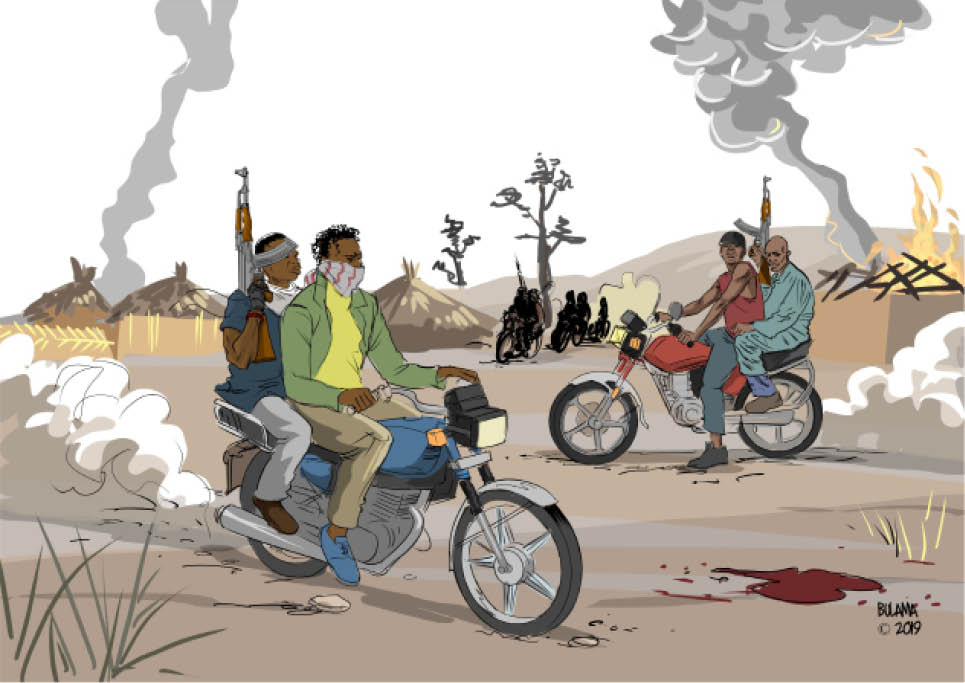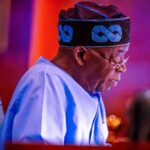No president, no matter how competent or patriotic he may be, can solve all the problems of his country. If the main human problems such as stealing and murder have not been solved since Moses brought down the Decalogue from Mount Sinai thousands of years ago, a Nigerian president would do well not to nurse the ambition of solving all our political, economic and social problems in only eight years in office. The best he can do is to rationally choose one problem that affects the people most from the welter of problems that confront the country and tackle it with all his power, all his might and all his patriotic dedication.
I believe President Buhari faces this critical choice as he stepped into his second and final term in office. In 2015, when he promised us change, the only problem he believed needed to be solved urgently was corruption. The commanders and the foot soldiers of the anti-graft war are in the trenches battling this scourge. But I wonder if the president still considers this the country’s most critical challenge today, given the level of insecurity, poverty, illiteracy and the threat of population explosion we now face as a nation.
The eradication of corruption is important, very important. It does our country and us as citizens no good that each time you mention Nigeria anywhere in the world, the picture that pops into the head is corruption. It would be nice for the holders of the green passport not to arouse suspicion of criminality at foreign ports any more. But in the last four years of the Buhari administration, and despite the fact that two former governors are in jail for corruption, the commanders and the foot soldiers are not really winning the war, partly because the national system that makes corruption possible has not under gone any discernible changes. And so, former big men accused of corruption remain big men and laugh in our faces by becoming our law-makers.
The president has made his point about fighting corruption. It is time for him to seek to give us his promised change by tackling problems that directly affect the people and the future of the country. He can take consolation in the fact that if at the end of his tenure, he looks back to his eight years in office and sees corruption with a big smirk on its face, it would not be for his want of trying and trying hard to rid the country of it. Nor do I think anyone would be so uncharitable as to blame him that a funeral dirge was not sung to corruption despite his single-minded war against it. I suppose that just as you cannot kill the beetle, you cannot kill corruption either.
Let us face the truth. No matter how many people the president jails for corruption, it would not make any impressions on the lives of the people or on insecurity and poverty in the country. As bad as it is, corruption does not kill. Insecurity and poverty do. Perhaps there is a correlation between corruption and poverty but I am not aware that anyone has blamed corruption for our increasing level of poverty. Poverty is a consequence of many factors but primarily the less than stellar competent management of our national resources – human and material. Our cynical attitude to its progressive reduction like other nations, including India, led to its current mind-blowing level. On this, we are running fast on the same spot.
Buhari should have no problems choosing between poverty and insecurity in his second term in office. In the circumstances, insecurity presents itself as the number one choice for the president. Almost every problem we face today rides on insecurity. I do not find it necessary to tabulate the ramifications of insecurity here. Solving this one problem solves a whole lot of problems. For one, we would all be alive. The essence of security is to keep the country and the people safe. If we are safe, we can go about our legitimate struggle to better our individual lot. If we are safe, we can legitimately be part of the national effort towards our national development.
We voted for Buhari in 2015 and again this year because we believed then and still believe that he could make us safe and the Nigerian state could guarantee its citizens the right to life, freedom of movement and safety in their homes, on the roads, on their farms and in their offices. We must be alive and safe enough to benefit from a corruption free country and the emergence incorruptible public officers.
The First Lady, Hajia Aisha Buhari, made that point clear with obvious personal pain last week. In a screaming front page banner headline, “End banditry before we all get killed,” the Daily Trust of June 2 quoted her as saying that “it would be unfortunate for people who voted whole heartedly for President Muhammadu Buhari to be allowed to be killed unnecessarily by bandits.”
Buhari could not have missed that. A strong and passionate plea from the home front. No one could have put it more strongly than that. If the president does not listen to his wife and take on the challenge of tackling insecurity, then our country and we are doomed. Our peasant farmers, particularly in Zamfara, Katsina and Borno states, have abandoned their farms for fear of being slaughtered by bandits and Boko Haram or being kidnapped. Other citizens in other states – Benue, Plateau, Kaduna and Taraba – do not feel safe to go about their farming and other activities. If there is no farming there is no food; and if there is no food, there is famine. That is common sense. We must pull back now from that edge and face the more insidious challenges of survival.
Nor should we forget that insecurity and poverty fuel corruption too. Corruption thrives when people are abandoned and are forced to engage in self-help to survive. The stark choice before the president is either to continue the anti-graft war that traumatises more than it deters or take on those problems that touch the lives of the people. Criminals have abridged the people’s God-given right to life, safety as well as their right to social and economic activities that benefit them.
It is unacceptable, Mr President. We cannot say that too often, because security matters more than anything else the Nigerian state and its president can offer its citizens. Corruption is a problem but insecurity is the biggest problem.

 Join Daily Trust WhatsApp Community For Quick Access To News and Happenings Around You.
Join Daily Trust WhatsApp Community For Quick Access To News and Happenings Around You.


